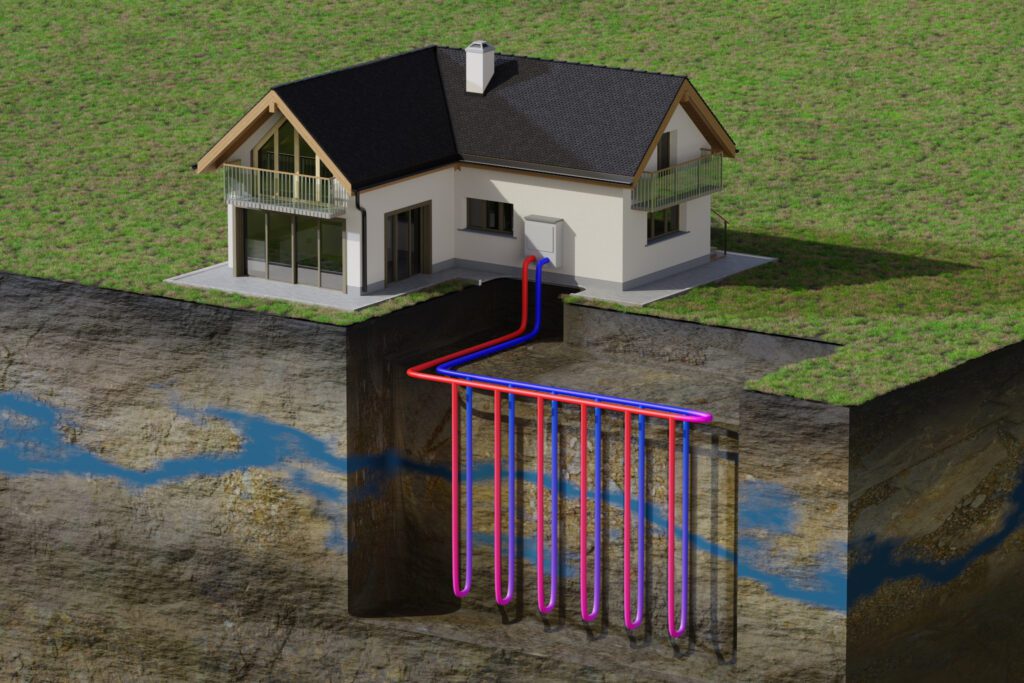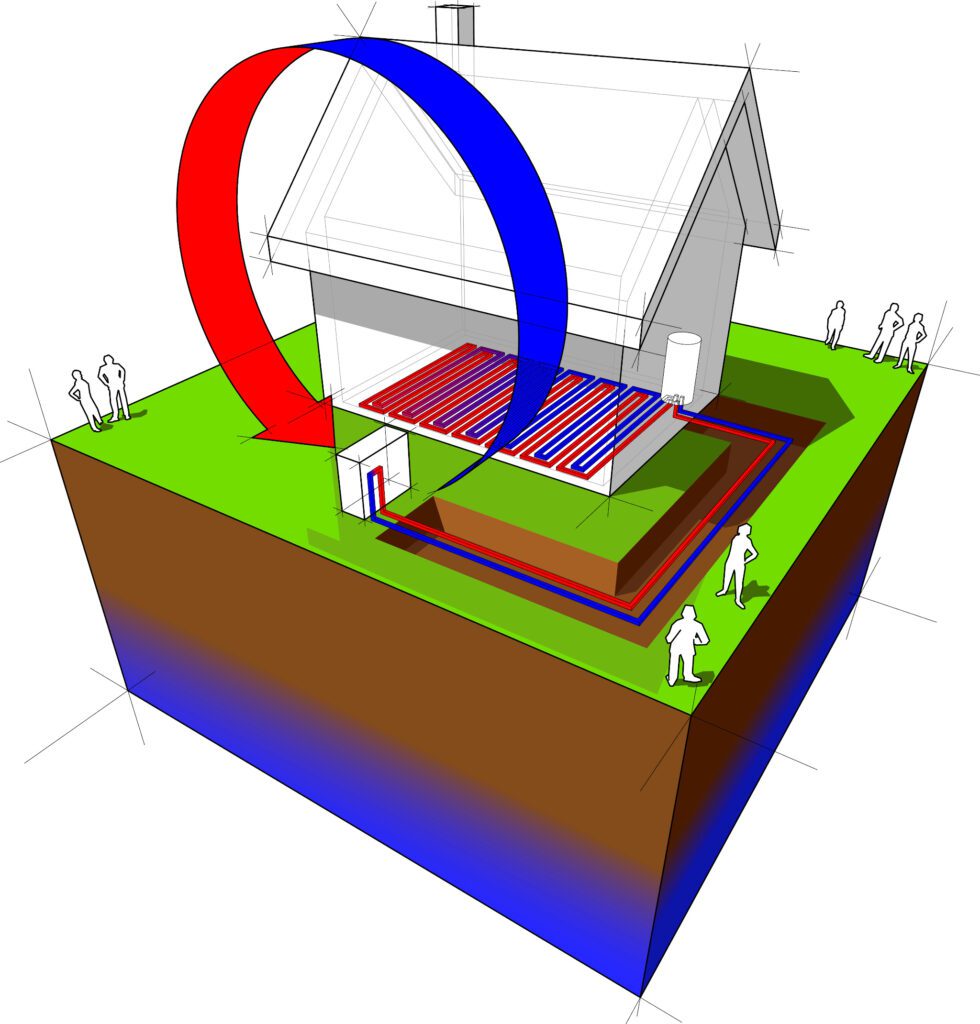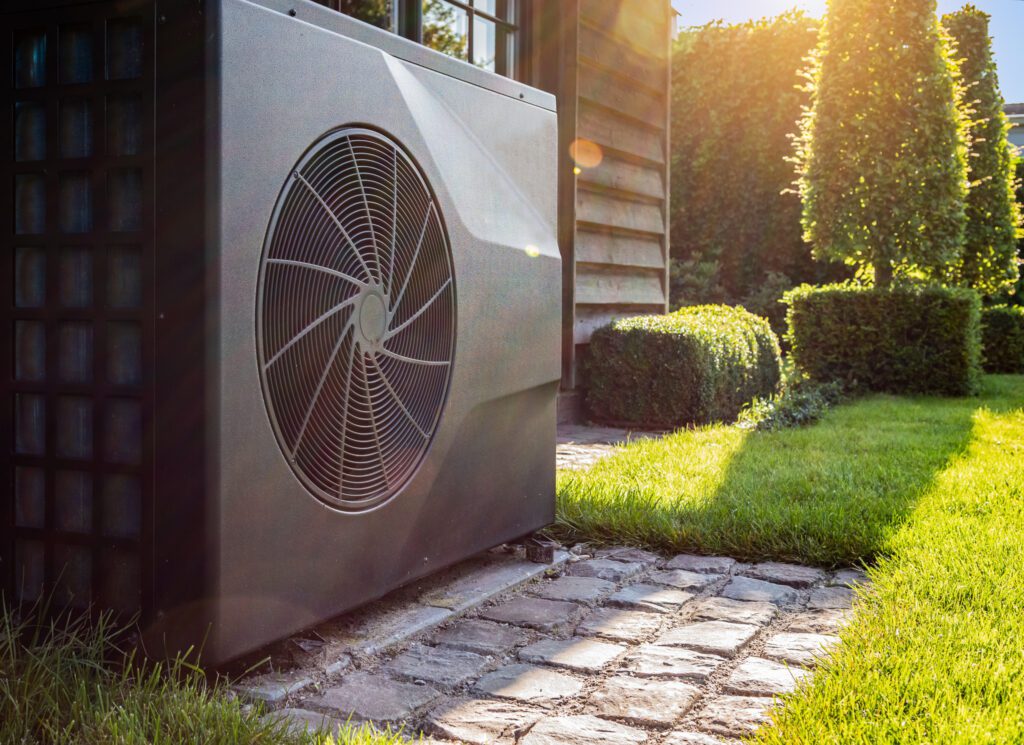
As climate change continues to be a growing concern, many homeowners are looking for more environmentally friendly and energy-efficient ways to heat their homes. One option that has been gaining popularity in recent years is the installation of heat pumps. In this article, we will discuss the benefits and types of heat pump installations for your home, as well as the pros and cons of ground source heat pumps, air source heat pumps, and estimated costs of each.
What is a heat pump?
Before diving into the benefits and types of heat pumps, let’s first define what a heat pump is. A heat pump is a device that uses electricity to transfer heat from one place to another. Unlike a traditional heating system, which creates heat by burning fuel, a heat pump moves heat from the outside of your home to the inside. It can also be used for cooling in the summer months by reversing the process and moving heat from inside your home to the outside.
Benefits of heat pump installations
There are several benefits of installing a heat pump in your home. One of the main benefits is that they are much more energy-efficient than traditional heating systems. According to the Energy Saving Trust, heat pumps can reduce your energy bills by up to 50%. This is because they use less electricity to move heat around than it takes to create heat from scratch.
Another benefit of heat pumps is that they are more environmentally friendly than traditional heating systems. By using electricity to move heat around, they do not produce any carbon emissions directly. This means that they can help reduce your carbon footprint and contribute to a greener planet.
Types of heat pump installations
There are two main types of heat pumps: ground source heat pumps and air source heat pumps. Let’s take a closer look at each type.
Ground source heat pumps

Ground source heat pumps, also known as geothermal heat pumps, extract heat from the ground using a loop of pipes buried in the earth. The pipes are filled with a mixture of water and antifreeze, which absorbs heat from the ground and carries it into your home. The heat is then transferred into your home’s heating system, such as radiators or underfloor heating.
Estimated cost of ground source heat pump installation:
The cost of installing a ground source heat pump can vary depending on several factors, such as the size of your home and the type of heating system you currently have in place. On average, a ground source heat pump installation can cost anywhere from £10,000 to £18,000.
Air source heat pumps

Air source heat pumps extract heat from the air outside your home. They work by taking in air and passing it over a heat exchanger, which extracts the heat and transfers it into your home. Like ground source heat pumps, air source heat pumps can be used for both heating and cooling.
Pros of air source heat pumps:
- Cheaper to install than ground source heat pumps.
- Do not require a large amount of land for installation.
- Can be easily installed in both new and existing homes.
- Can be used with existing radiators or underfloor heating systems.
Cons of air source heat pumps:
- Less efficient than ground source heat pumps – typically provide around 3 units of heat for every 1 unit of electricity used.
- Can be noisy when in operation.
- May not be suitable for very cold climates.
- May require a backup heating system in very cold weather.
Estimated cost of air source heat pump installation:
The cost of installing an air source heat pump is generally lower than that of a ground source heat pump. On average, an air source heat pump installation can cost anywhere from £6,000 to £10,000.
Conclusion
Heat pumps offer many benefits, including energy efficiency and environmental friendliness. When choosing between a ground source heat pump and an air source heat pump, consider factors such as the size of your home, your existing heating system, and your budget. While ground source heat pumps are more efficient, they are also more expensive and require more land for installation. Air source heat pumps are cheaper to install but may not be suitable for very cold climates. Whatever your choice, a heat pump can provide a cost-effective and sustainable solution for heating and cooling your home.
Looking for a qualified EPC Assessor in your Area?
Try the search form below for instant results!!
Select button for EPC Type and Postcode, then hit the "Find Assessors" button. The search the page will then display assessors in your area
EPC search form provided free by Go Local EPC Ltd


